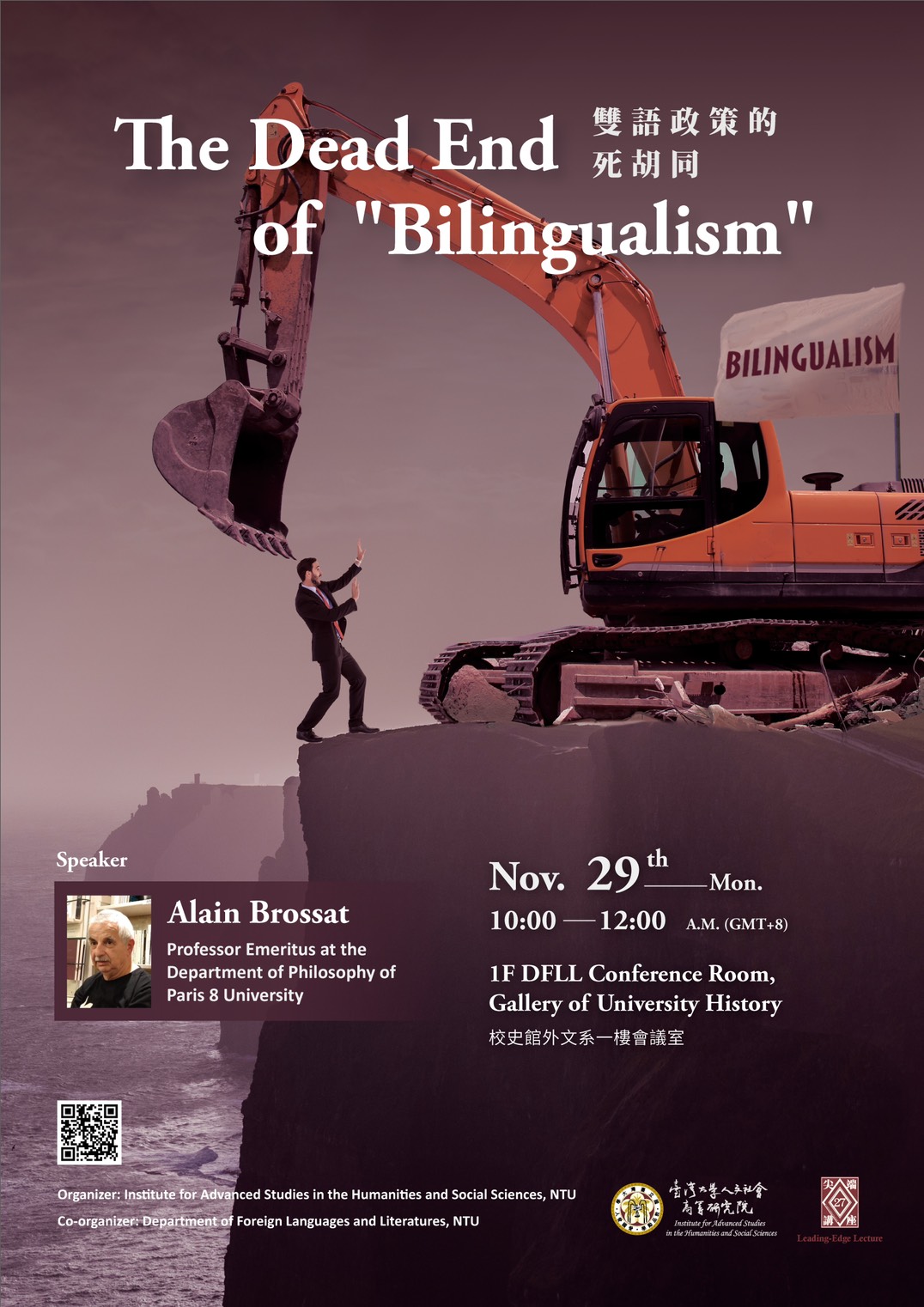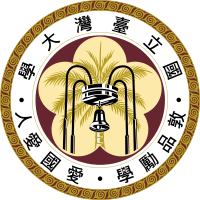【尖端講座系列】第二十七場 The Dead End of Bilingualism 雙語政策的死胡同
【尖端講座系列第27場】
主題:The Dead End of "Bilingualism" 雙語政策的死胡同
主講人:Alain Brossat (Professor Emeritus at the Department of Philosophy of Paris 8 University)
主持人:廖咸浩(國立臺灣大學外國語文學系特聘教授)
時間:11月29日(週一)上午10:00-12:00 (GMT+8)
地點:校史館外文系會議室
主辦單位:國立臺灣大學人文社會高等研究院
合辦單位:國立臺灣大學外國語文學系
【Leading-Edge Lecture 27】
Topic:The Dead End of "Bilingualism"
Speaker:Alain Brossat (Professor Emeritus at the Department of Philosophy of Paris 8 University)
Moderator: Hsien-hao Liao (Distinguished Professor of Department of Foreign Languages and Literatures, NTU)
Time:Nov. 29th (Mon.) 10:00-12:00 A.M. (GMT+8)
Venue: 1F DFLL Conference Room, Gallery of University History (校史館外文系一樓會議室)
Organizer: Institute for Advanced Studies in the Humanities and Social Sciences, NTU
Co-organizer: Department of Foreign Languages and Literatures, NTU
Signup link: https://forms.gle/THVepQuAHQ6KwDxr5
主講人 Speaker:
巴黎第八大學哲學系榮譽教授。現為國立成功大學玉山學者客座教授。主要研究當代法國哲學思想,並以重新思考民主,深入移民、庶民與社會底層主體性議題,同時著力於文化與智識解殖研究。中譯著作有:《傅柯:危險哲學家》(2013)、《錯開的交會:傅柯與中國》(2019)、《遭撞翻的哲學家:哲學評論集》(2021)。
摘要 abstract:
Bilingualism cannot be established by decree – this is what the speaker stands for in this lecture, arguing against the hollow slogan « Taiwan perfectly bilingual in 2030 », that is English-speaking as well as Mandarin. It focuses on the flaws and biases of this poor and suspect Utopia and stresses that bilingualism cannot be reduced to a matter of social, educational and disciplinary enginnering and training. By refering to contemporary French philosophy (Gilles Deleuze, Michel Foucault, Jacques Derrida...), it brings out that bi- or pluri-lingualism is related to concrete, actual situations and configurations, collective practices and conducts. It has to be rooted in the civilization of mores (the people's habitus...) and cannot be envisioned and grasped as a requirement dictated by the reasons of State and dealt with as a bureaucratic matter. What people speak or how they pass from a language to another – this is related to everyday life, to the interests, the affects of ordinary people, to the situations and social networks they are involved in. Intending to rule on all that from above, in a vertical and voluntarist way, this paves the road to a linguistic dystopia – Speak on command, speak the global language, speak the language of the master ! Or... - Or what ? You'll cut our tongues ?!




